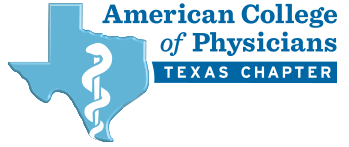Feedback Survey on Proposed ACP Resolutions
Thank you for participating in the following survey. Your input and suggestions are invaluable and will be used by the Texas Chapter Resolutions Committee and Board of Directors in developing chapter positions on ACP Policy. Please share with us your comments on proposed Resolutions.
Questions? Please contact the chapter office at 512-370-1528 for assistance or TXACP@texmed.org.
Your input optional on all Resolutions.
